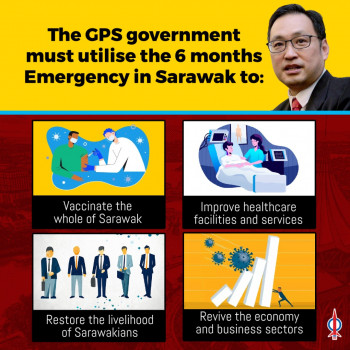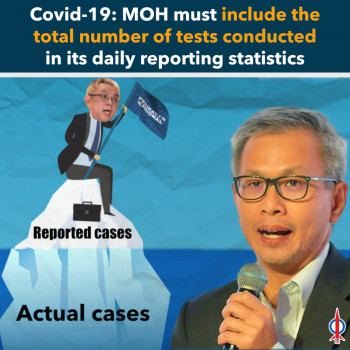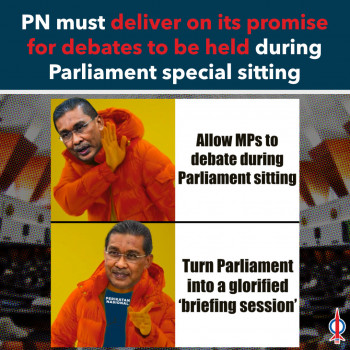Media statement by ADUN for Kampung Tunku, Lim Yi Wei on 7 May 2021:
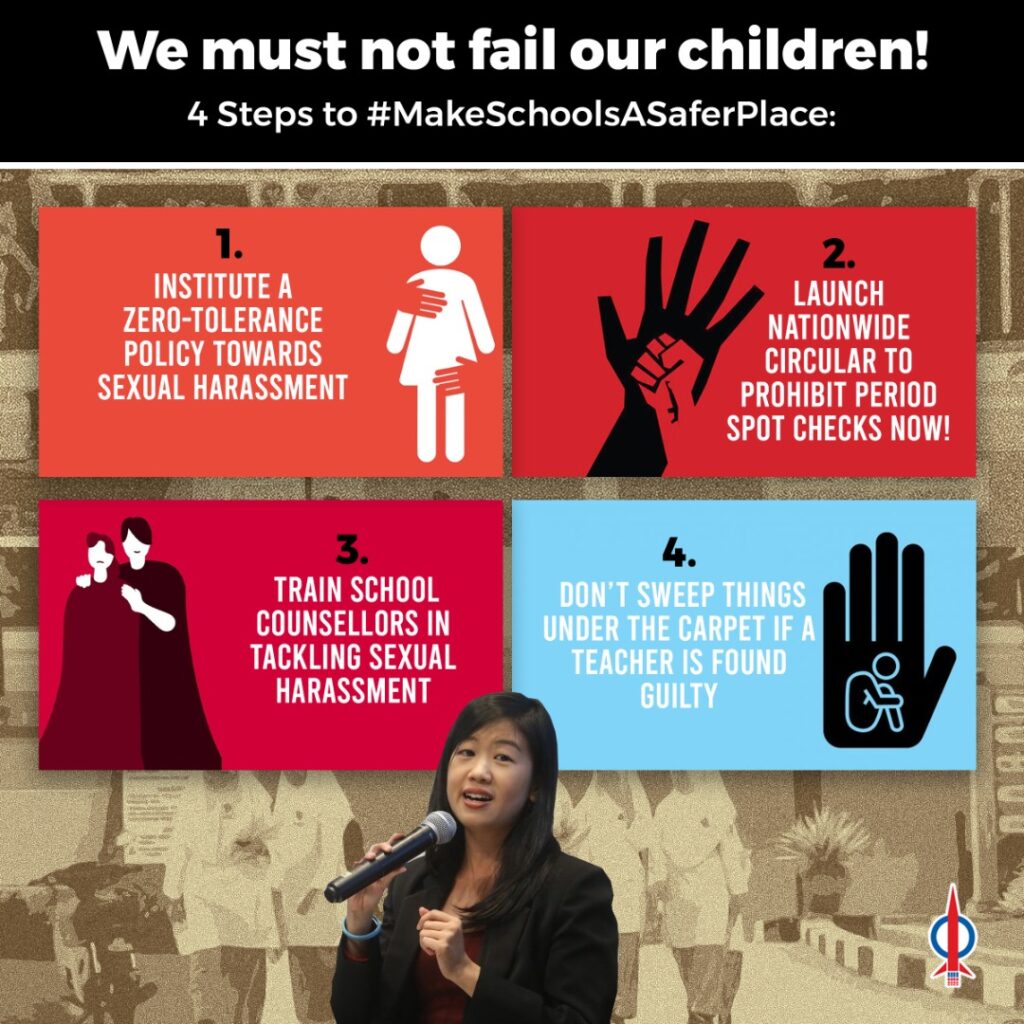
Are we failing our children?
For Malaysian children and youth, living with Covid-19 has been chaotic. Schools closed, opened, and closed again due to rising case numbers. As students prepare to return to online learning, the 150,000 laptops for B40 students promised by the Finance Minister have yet to be seen.
Over the past month, students have revealed experiences of sexual harassment in school. Period spot checks, unwanted touch, rape jokes affected girls; boys were not exempt from groping and lewd remarks. After 17-year-old Ain Husniza Saiful Nizam shared on Tiktok about her teacher’s rape joke (ironically in a class discussing sexual harassment), she received rape threats from a classmate and was accused of being a “troubled” student and autistic.
On Facebook, Malaysiakini’s interview with Ain and her father were flooded with lewd comments on her body. Some said that she deserved the threats. Netizens found out that some of the commenters were teachers; one was a motivational counsellor that traveled between secondary schools.
Sexual harassment and rape are crimes, not joking material
Responses from figures in authority have been disappointing.
1. When confronted about period spot checks, Education Minister Radzi Jidin stated that MOE asked schools if this happened, and schools said no. Case closed. Pressed further, he challenged the public to name the schools. This week, Malaysiakini submitted a list of at least 15 schools. Ball’s now in your court, minister.
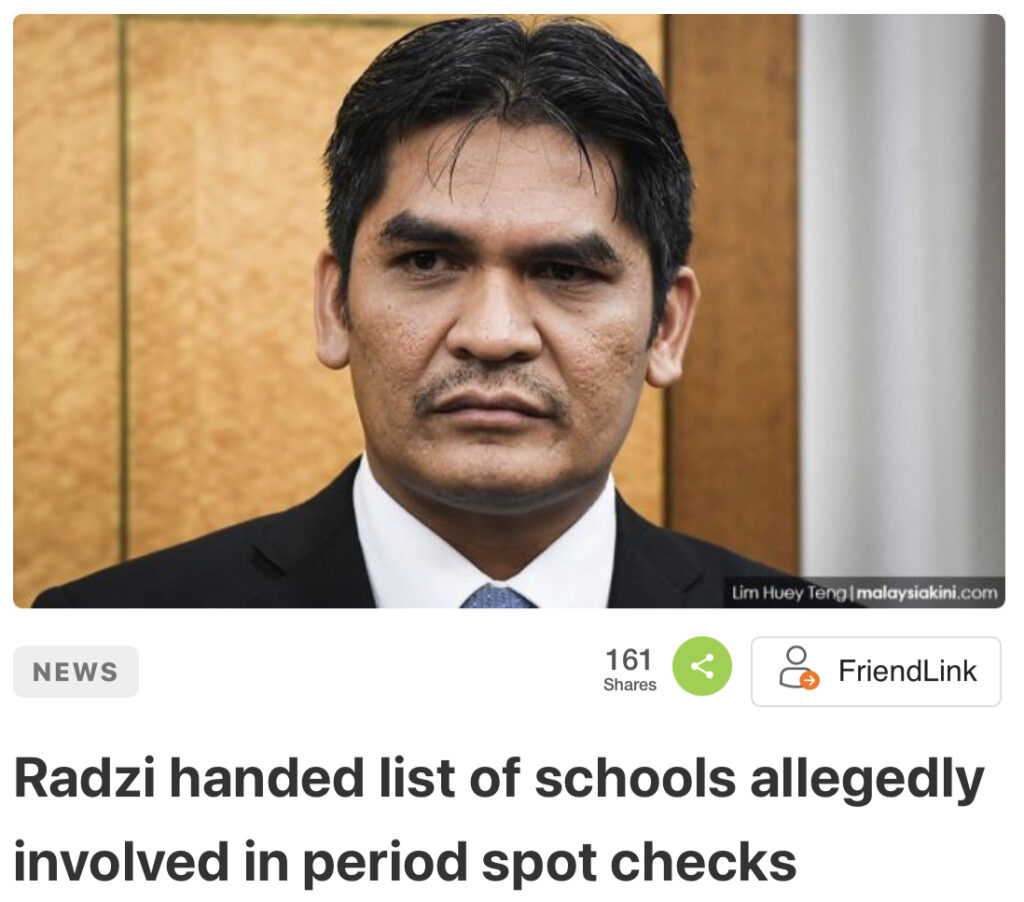
2. Women, Children and Community Development Minister Rina Harun said she would “pandang serius” into this issue. Her deputy Siti Zailah has been silent.

3. The newly installed Inspector-General of Police (IGP) was quoted at a press conference describing the rape threat against Ain as a “possible joke” by her classmate.
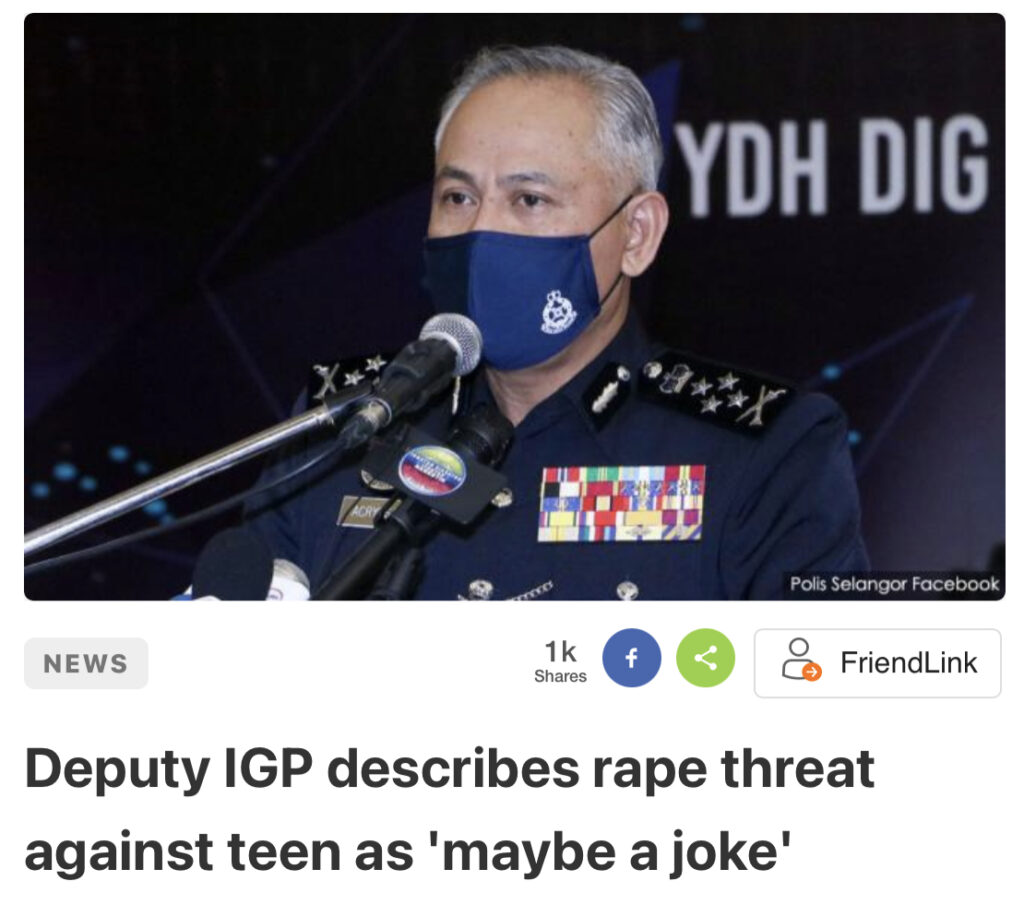
4. In an Astro Awani interview, the Secretary-General of the National Union of the Teaching Profession (NUTP) point-blank denied students’ sexual harassment complaints and rape culture in schools. Instead of addressing the issue, he badgered the moderators on “facts and data” to prove whether the problem is occurring nationwide.
“How is this a widespread problem? Where’s the data, how many schools are we talking about?” says Harry Tan, Sec-Gen of NUTP when asked by @melisa_idris & @sharaadkuttan if the Teachers’ Union is concerned abt abuse allegations in schools. #ConsiderThis at https://t.co/6oMihRqLO5 pic.twitter.com/0vYnThzOmY
— 🇲🇾Astro AWANI🇲🇾 (@501Awani) May 5, 2021
Have you met a child rape victim? I have. She was 10 when she was first raped by her father – who then prostituted her to his friends for the next 3 years. She was shorter than me and had not matured physically. While she interacted with her younger siblings with the playfulness of an everyday 13-year-old, she was understandably distrustful of strangers. The trauma she experienced will take some time to unpack. Not a laughing matter at all.
#MakeSchoolASaferPlace
As a child of 2 retired teachers, working with families in my current capacity, the issue of child safety in schools is one close to my heart. One child sexually harassed in school is one too many. Instead of staying silent (Rina Harun, Siti Zailah) or being defensive (see: Education Minister, NUTP Sec-Gen), authorities could take simple yet powerful actions such as:
1. Instituting a zero-tolerance policy towards sexual harassment by establishing penalties against improper touch and conduct
2. Immediately prohibiting period spot checks in schools via a nationwide circular
3. Committing to training school counsellors and admin in tackling sexual harassment
4. Committing not to sweep things under the carpet and that transferring teachers is not an acceptable option if there is evidence the teacher is guilty.

We cannot simply say “this is how it was in my time” when sexual harassment clearly impacts our children negatively even up to adulthood. This article barely touches the iceberg, as online child sexual abuse and exploitation (OCSEA) emerges as a real risk to children who grew up with the internet.
If we fail to set up a supportive environment when children come to us with complaints, then we fail our children.
Perhaps the very least we can do is really listen to the children and support them to make school a safer place.

